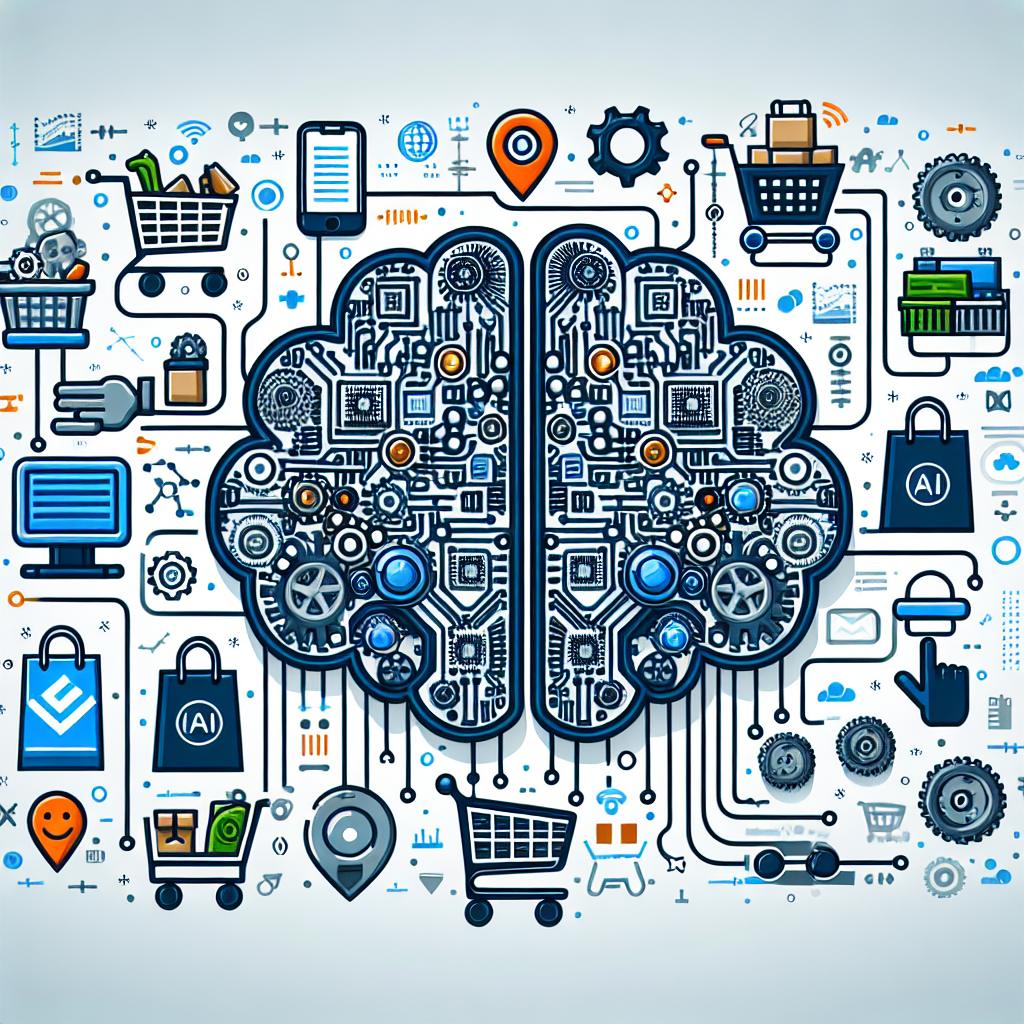The Impact of AI Automation on Retail Customer Experience
In recent years, artificial intelligence (AI) has been revolutionizing the way businesses operate, particularly in the retail sector. AI automation has the potential to streamline processes, improve efficiency, and enhance the overall customer experience. In this article, we will explore the impact of AI automation on retail customer experience and how businesses can leverage this technology to stay competitive in an increasingly digital world.
1. Personalized Shopping Experience
One of the key benefits of AI automation in retail is the ability to provide personalized shopping experiences for customers. AI algorithms can analyze customer data, such as browsing history, purchase behavior, and preferences, to recommend products that are tailored to individual needs and preferences. This level of personalization can help retailers increase customer satisfaction and loyalty, as well as drive sales and revenue.
For example, online retailers can use AI-powered chatbots to assist customers with product recommendations, sizing information, and styling advice. These chatbots can engage with customers in real-time, providing personalized recommendations based on their browsing history and purchase behavior. This level of personalized service can help customers find the products they are looking for more quickly and easily, leading to a more satisfying shopping experience.
2. Inventory Management and Demand Forecasting
AI automation can also help retailers optimize inventory management and demand forecasting processes. AI algorithms can analyze historical sales data, market trends, and other factors to predict future demand for products and optimize inventory levels accordingly. This can help retailers reduce stockouts, minimize overstocking, and improve overall inventory turnover rates.
For example, AI-powered inventory management systems can automatically reorder products when inventory levels are low, track sales trends in real-time, and adjust pricing and promotions to maximize sales. This level of automation can help retailers stay ahead of demand fluctuations, reduce costs, and improve operational efficiency.
3. Enhanced Customer Service
AI automation can also enhance customer service by providing customers with instant access to information and support. Chatbots, virtual assistants, and other AI-powered tools can help customers find answers to their questions, resolve issues, and make purchases more efficiently. This can help retailers reduce wait times, improve response rates, and provide a more seamless and convenient customer experience.
For example, AI-powered chatbots can assist customers with common questions, such as product availability, shipping information, and return policies. These chatbots can provide instant responses, 24/7 support, and personalized recommendations based on customer preferences. This can help retailers improve customer satisfaction and loyalty, as well as increase sales and revenue.
4. Fraud Detection and Security
AI automation can also help retailers detect and prevent fraud more effectively. AI algorithms can analyze transaction data, patterns, and anomalies to identify potentially fraudulent activities and flag suspicious transactions for further investigation. This can help retailers reduce fraud losses, protect customer data, and enhance overall security measures.
For example, AI-powered fraud detection systems can analyze thousands of transactions in real-time, identify fraudulent patterns, and alert retailers to potential risks. These systems can help retailers prevent unauthorized transactions, detect identity theft, and protect customer information from cyber threats. This level of security can help retailers build trust with customers, protect their brand reputation, and ensure a safe and secure shopping experience.
5. Improved Marketing and Sales Strategies
AI automation can also help retailers improve their marketing and sales strategies by analyzing customer data, identifying trends, and optimizing campaigns in real-time. AI algorithms can analyze customer behavior, preferences, and purchase history to create targeted marketing campaigns, personalized promotions, and recommendations that drive sales and revenue.
For example, AI-powered marketing automation platforms can segment customers based on their preferences, target them with personalized offers, and track the effectiveness of campaigns in real-time. These platforms can help retailers identify high-value customers, increase engagement rates, and drive conversions through targeted marketing efforts. This level of automation can help retailers optimize their marketing spend, improve ROI, and enhance overall sales performance.
FAQs:
Q: How can AI automation improve inventory management in retail?
A: AI automation can improve inventory management in retail by analyzing historical sales data, market trends, and other factors to predict future demand for products and optimize inventory levels accordingly. This can help retailers reduce stockouts, minimize overstocking, and improve overall inventory turnover rates.
Q: What are some examples of AI-powered tools that can enhance customer service in retail?
A: Some examples of AI-powered tools that can enhance customer service in retail include chatbots, virtual assistants, and other AI-powered tools that can help customers find answers to their questions, resolve issues, and make purchases more efficiently. These tools can provide instant responses, 24/7 support, and personalized recommendations based on customer preferences.
Q: How can AI automation help retailers improve marketing and sales strategies?
A: AI automation can help retailers improve marketing and sales strategies by analyzing customer data, identifying trends, and optimizing campaigns in real-time. AI algorithms can analyze customer behavior, preferences, and purchase history to create targeted marketing campaigns, personalized promotions, and recommendations that drive sales and revenue. This can help retailers increase engagement rates, drive conversions, and optimize their marketing spend.
In conclusion, AI automation has the potential to revolutionize the retail industry by enhancing the customer experience, improving operational efficiency, and driving sales and revenue. By leveraging AI-powered tools and technologies, retailers can provide personalized shopping experiences, optimize inventory management, enhance customer service, detect fraud, improve marketing and sales strategies, and stay ahead of the competition in a rapidly evolving digital landscape. As AI continues to advance and become more widespread, retailers that embrace this technology will be better positioned to succeed in the future.

